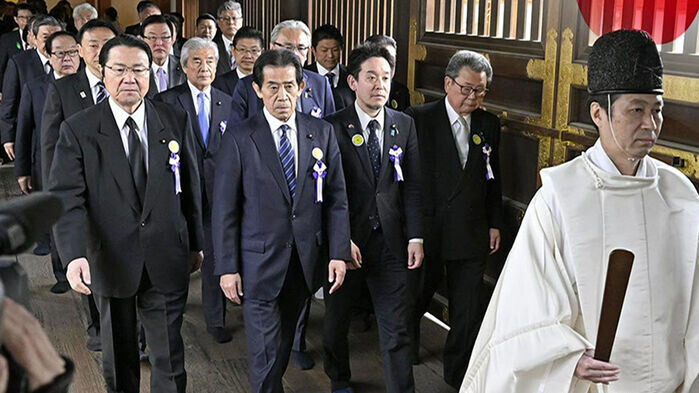
Tokyo, Japan – A recent nationwide survey conducted by the Asahi Shimbun reveals a notable shift in Japanese public opinion regarding the nation's past wartime actions. The poll, released on the 80th anniversary of Japan's defeat in the Pacific War, indicates that a majority of Japanese citizens believe the government has already sufficiently apologized and provided compensation for its wars of aggression and colonial rule.
The survey found that 58% of respondents feel Japan has done enough in terms of apologies and reparations, marking a slight increase from a similar poll conducted a decade ago, where 57% held the same view. Conversely, the percentage of those who believe Japan's efforts have been insufficient has risen from 24% to 29% over the past ten years.
This evolving perspective extends to the need for ongoing apologies from Japanese politicians. The survey showed a reversal in opinion on this matter. Currently, 47% believe there is no need for continued apology messages to victimized countries, while 44% think they should continue. This contrasts with a 2015 survey where a larger percentage (46%) felt such messages should continue, compared to 42% who disagreed.
Furthermore, the historical understanding of the Pacific War appears to be undergoing a subtle transformation within Japan. The survey indicated a slight decrease in the percentage of people who unequivocally view the conflict as a "war of aggression" by Japan, falling from previous levels to 28%. Meanwhile, a significant 42% now see the war as having "both aspects of a war of aggression and a war of self-defense," and 8% consider it solely a "war of self-defense."
Analysts suggest that this shift in public sentiment may be linked to the recent approach of the Japanese government towards its wartime history. While Japan's 1995 Murayama Statement, issued by then Prime Minister Tomiichi Murayama, offered a clear expression of "deep remorse" and "sincere apologies" for the suffering caused by colonial rule and aggression, subsequent government statements have adopted a more nuanced tone.
Notably, in his 70th anniversary statement in 2015, Prime Minister Shinzo Abe affirmed the upholding of the Murayama Statement but offered only indirect references to apologies and remorse. Abe also argued that future generations should not be perpetually burdened with the responsibility of apologizing for the actions of the past. Adding to this trend, recent reports indicate that current Prime Minister Shigeru Ishiba has no plans to issue a statement marking the 80th anniversary of the end of the war.
The findings of this survey highlight a potentially widening gap between the views held by a significant portion of the Japanese public and the expectations of countries that were victims of Japan's wartime actions. As the 80th anniversary of the end of World War II approaches, these evolving perceptions within Japan are likely to fuel further discussions and potentially strain diplomatic relations with neighboring nations that continue to seek a more unequivocal reckoning with the past. The survey underscores the enduring complexity and sensitivity surrounding the historical legacy of World War II in East Asia.
[Copyright (c) Global Economic Times. All Rights Reserved.]



























